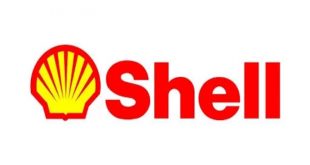The House of Representatives has ordered a probe into over $20billion spent on Turn Around Maintenance (TAM) of Kaduna, Warri and Port Harcourt refineries by the Nigerian National Petroleum Corporation (NNPC).
The decision to probe the expenditure followed a motion raised by Ibrahim Isiaka (APC, Ogun), entitled ‘Need to investigate the status of the nation’s refineries, their Turn Around Maintenance (TAM) to date and regular/modular licensed refineries.’
Leading the debate, Isiaka noted that Nigeria, the 12th largest oil producing nation in the world, with an estimated 37.2 billion barrels of crude oil deposits and ranking 7th in the world in terms of gas reserves of about 187 trillion feet, is not among the top three countries in Africa in terms of refining capacity.
The lawmaker told the House that whopping sums of $308 Million, $57 million, $200 million and lately, more than ₦264 billion had been spent on maintenance of the refineries but that the Nigerian National Petroleum Corporation (NNPC) is reportedly seeking for $1.8 billion to carry out another TAM supposedly to make the refineries attractive to investors.
He said in addition that the country is the only member of the Organization of Petroleum Exporting Countries (OPEC) that depends on imported refined petroleum products.
This is despite the fact that more than $20billkion has been spent on the TAM of the refineries built to refine 445,000 barrels of crude per day, he lamented, stressing that the refineries have, over the years, fallen into disrepair with their average capacity utilization standing at an abysmal 11 percent.
Mr. Isiaka said such output is the worst performance record in Africa, compared to 81 per cent and 85 per cent respectively for Egypt and South Africa.
According to him, Senegal runs one refinery with a 27,000bpd capacity; Cameroon has one with 42,600bpd; Congo, 21,000bpd; Niger Republic, 20,000bpd; Chad 20,000bpd; Zambia 34,000bpd, Gabon 25,000bpd, Algeria 499,000bpd, Libya 380,000bpd, South Africa 626,500bpd and Egypt 1,102,550bpd, respectively.
He also expressed concerns that despite major paradigm shift and consideration of different reliefs, including reduction of licensing fee for new refineries from $1 million to $50,000 to make domestic refining attractive and reduce the huge capital flight to fuel importation, meet local demand and possible exports, only Aliko Dangote has put the license to use and no efforts have been made to revoke the licenses given to individuals and corporate organizations to build refineries which have not yet been utilized.
The House accordingly resolved to set up an Ad-hoc Committee to “ascertain the viability of continuing investments of public funds on the nation’s four (4) refineries and allocation 445,000bpd crude utilization for the same purpose;” and “determine the current utilization level of Warri, Kaduna and Port-Harcourt Refineries.”
The committee is also to “carry out a comprehensive investigation of the Turn Around Maintenance (TAM) carried out to date on the refineries” and “identify the private and corporate individuals that have refused to utilize the licences (regular and modular), the readiness and status of all current holders and report back within 90 days for further legislative action.”
 DailyrecordNg …Nigeria's hottest news blog
DailyrecordNg …Nigeria's hottest news blog









